Record Number of Women Take Lead as Committee Staff Bosses
Kathy Dedrick first learned her way around Capitol Hill in a congressional page’s navy blue blazer.
More than 25 years later, Dedrick is in charge of hiring, firing, and managing dozens of majority-party staffers at the Transportation and Infrastructure Committee.
She’s among seven women, the most ever, who oversee operations at more than a third of House standing committees in the 116th Congress.
Although generally avoiding the public spotlight, they will play leading roles as Democrats investigate President Donald Trump’s policies and business practices as well as write legislation on spending, immigration, trade, infrastructure and other policy areas.
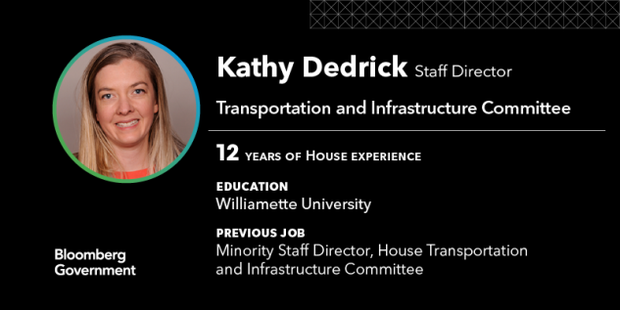
Women also hold top slots at Agriculture, Appropriations, Budget, Education and Labor, Financial Services, and Homeland Security.
Diversity in staffing can make a difference in how issues are framed and debated, said Kelly Dittmar, a Rutgers University political science professor and scholar at the Center for Women and Politics.
“Staff play an influential role in deciding what gets on the agenda and identifying who comes to testify,” she said.
Responsibility for drafting a $500 billion blueprint to rebuild the nation’s roads and bridges will fall heavily to Dedrick, who after interning for Rep. Peter DeFazio (D-Ore) became former Vice President Al Gore’s “greetings correspondent.”
After working as DeFazio’s legislative assistant and personal office chief of staff, when DeFazio gained the top Democratic position on the T&I Committee, Dedrick was well-positioned.
“I guess it’s kind of a dream come true,” Dedrick said in an interview. “When you first start in these offices it’s ‘Oh, I’d like to be the person in charge some day’ and I was actually able to do it, which is amazing.”
PACE OF CHANGE
Men generally have been the ones running committee staffs, no matter which party has been in charge. For instance, in 1998 during the Republican-controlled 105th Congress, there were only two women committee chiefs of staff. They worked for the House Administration and Small Business panels.
A decade later when Democrats were in power during the 110th Congress, three females held the top staffer slots on committees. Last year, with Republicans were in control, women ran the staffs of four committees.
“Congress is starting to look more like America, and it’s good when Congress reflects the people they represent,” said DeFazio.
The staffing makeup mirrors membership trends of Congress itself, with a record number of women elected to serve this year, four congresswomen chairing House committees and of course Nancy Pelosi (D-Calif.) as speaker.
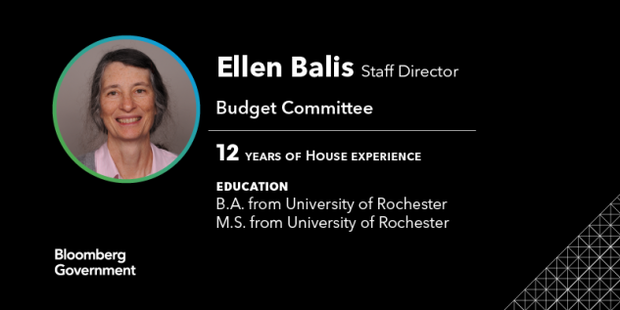
Ellen Balis, the Budget Committee’s chief of staff, said about 20 professionals will assist her in dissecting the president’s budget request, including more than a dozen women.
Balis came to her current position with a resume tailored for picking apart the voluminous federal budget.
She worked at the White House Office of Management and Budget for more than 20 years and most recently was minority staff director of the Budget Committee.
Women bring many of the same backgrounds and skills as male staffers but may take a different approach to problem solving, she said in an interview.
“Women tend to be less driven by ego and are more mission oriented,” Balis said. She said 20 years ago male staffers appeared to resist or were dismissive of female input. “Now it’s few and far between – or they hide it better,” she said.
At OMB, Balis joined a lawsuit challenging a random drug testing policy for federal employees with access to the Old Executive Office Building. The Supreme Court in 1998 affirmed an appeals court ruling allowing the testing.

Hope Goins, the Homeland Security Committee’s chief of staff, said the increased diversity extends through the ranks of the committees, with a growing number of black and Hispanic staffers.
For instance, she said, Thompson chose Alexandra Carnes to head the staff of the Border and Maritime Security Subcommittee as it begins looking into the treatment of migrant children in U.S. Customs and Border Protection custody.
“Out of nine senior staff positions that are filled seven are women and of these there are four women of color,” said Goins, who has worked for Chairman Bennie Thompson (D-Miss.) for 11 years.
“Women add so much perspective but it’s important to have diversity overall because the things that we do here affect people all over the country,” Goins said.
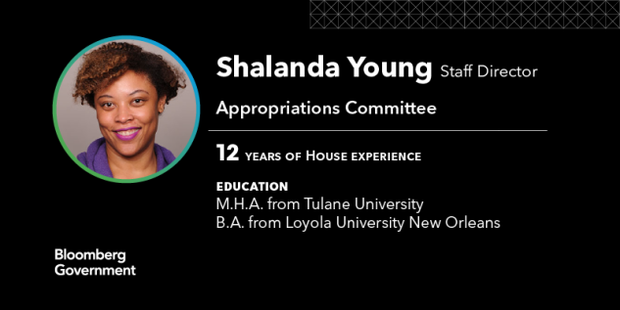
Appropriations chief of staff Shalanda Young is on the front lines in the battle between the Democrats and Trump over his demand for more than $5 billion in border wall funding.
She most recently served as minority staff director for the committee, which is now led by Rep. Nita Lowey (D-N.Y.).
Young said this year six of the committee’s 13 top subcommittee staffers will be women. The staff will be preparing for the fiscal 2020 appropriations season even as Congress struggles to complete work on the seven remaining fiscal 2019 spending bills, including Homeland Security.
Young said she’s noticed a dramatic change since the 1990s, when few of the panel’s professional staff jobs went to women.
“Republicans had the first female clerks at the subcommittees, which was a big deal. Previous to that it was all men and people at the committee still talk about that,” she said.
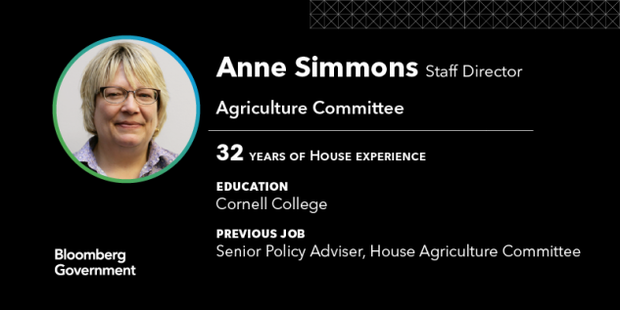
The House Agriculture Committee broke ground when former Chairman Kika de la Garza (D-Texas) named the first female chief soon after Anne Simmons arrived in 1993.
Now Simmons herself is serving in the post under Chairman Collin Peterson (D-Minn.). “I would never have envisioned it,” Simmons said.
Simmons said the panel’s senior staff will include even more women as it prepares to oversee the implementation of the recently enacted farm program reauthorization (Public Law 115-334 ) and evaluate the revised North America Free Trade Agreement that Trump negotiated with Mexico and Canada. Besides herself, she said at least five of the majority’s senior staffers will be women, including a new counsel.
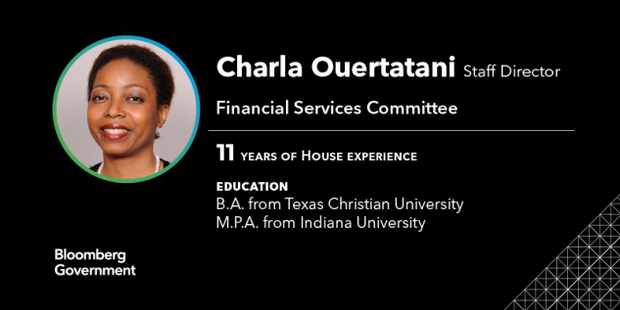
Financial Services Committee Chairman Maxine Waters (D-Calif.) has named Charla Ouertatani to lead the panel’s staff as it prepares to move on revamping federal housing policy and banking issues.
Ouertani has been minority staff director since 2013 and prior to that held many other posts at the committee since joining in 2007.
Education and Labor Committee Chairman Bobby Scott (D-Va.) has tapped Veronique Pluviose to oversee issues such as development of minimum wage and pay equity legislation this year.

Pluviose leads a team where the majority of the senior staff also are women. Both the chief clerk and general counsel and the directors of health care and education policy are women, an aide said.
Dedrick said she anticipates the female chiefs will work collaboratively to advance the Democratic agenda.
“There are a lot of women staff directors that are taking over in this majority and I think it tends to be more collegial and less jockeying for position,” Dedrick said. “We can work together to resolve our differences differently than men might.”
To contact the reporter on this story: Nancy Ognanovich in Washington at nognanov@bgov.com
To contact the editors responsible for this story: Katherine Rizzo at krizzo@bgov.com; Bennett Roth at broth@bgov.com